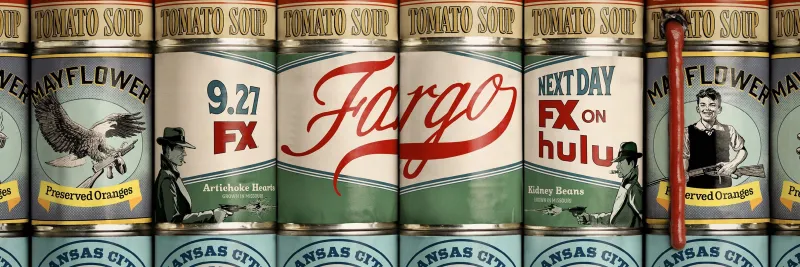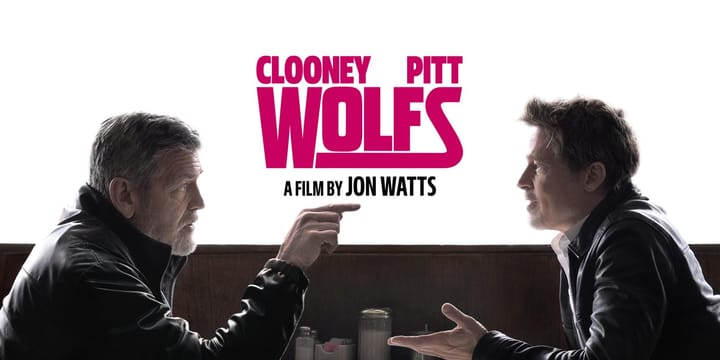So Good It Hurts

All works of art, be it independent or commercial, passive or performance, have the ability to spark emotions and reactions that span the gamut from sadness to joy, from tears to laughter. I’ve felt the whole spectrum, particularly when watching my favorite mediums of film and television. But the one feeling that I find most fascinating is the feeling of hurt.
That seems like a strange feeling to have from watching something. So what do I mean by, hurt?
I don’t mean sadness or grief or even shared pain with a specific character, though they all can be attributes of hurt.
When I say hurt, I mean something of an inner ache. It’s a hard to quantify feeling you get when you watch something that defies what you have experienced before and is capable of being done in a specific medium. It’s an acknowledgement by your heart and mind that the art you are experiencing is near perfect in its execution in relation to its context and intention. (Although, it should be noted, nothing is perfect and imperfections can show how perfect something really is. But imperfect perfection is a discussion for another day.)
But when you are in the moment of realizing the ability of someone to make something so great, so complete, this inner ache is like you’re soul’s overwhelmed recognition of its truth and pureness.
This sounds like a lot of airy, greeting card language, I know. But that’s what happens when you’re at a loss to explain an esoteric feeling. I’m examining and working through understanding this feeling as I write this.
I wrote about this experience a bit when reflecting on the great show *Mindhunter*, stating that the connection I have with that show is so strong, so deep, that it’s a nirvana like experience watching that show at times. But this feeling wasn’t limited to just *Mindhunter*. Others include *The Wire*, *The Crown*, *Doom Patrol*, and of course *Mad Men*.
Currently, its Season 4 of *Fargo* that got me thinking more about this feeling of hurt. The anthology series by Noah Hawley is an astounding show, with another absolutely superb season, that is while thrilling to watch, also induces a sense of dread that this could be its last go around. But what is it about this show, and the others, that elicit this distinct feeling of hurt?
While the summation is the soul recognizing a faithful execution of an idea, there is more to it. It starts with a vision, an intention. Then articulating that vision, not just by the high-level theme and beats, but by the small, intricate details.
That is why the biggest common trait between these shows is nuance. The small details and decisions alone don’t mean much, but together transform the show. And it’s not just one person or story element’s contribution. This ranges from the story by the writer(s), to the characters played by the actors, the composition of the score, and the images presented by camera, lighting, costume, and production design. They are at the same time, carefully choreographed, while feeling organic, creating conflict and tension that engages with the audience on a higher level.
These shows weave in story beats and character elements that add dimension and layers. But it’s in the details of the connections, the nuance of the characters interaction and responses to the world around them, that drives these shows more than a series of events unfolding.
They have great and interesting ‘A’ stories that drive the narrative action forward and are interesting on their own, but they are built on a layered foundation.
The characters that each have distinct personalities influenced by their upbringing and surroundings, they also have agency and are not a monolith in their choices and reaction to the events around them. Their unique struggles and drive to attain something— either stated or inferred— allows them to influence and effect the action of the story. No matter how big or small the role is.
Combined with wonderful, endearing, and whimsical idiosyncrasies and ticks, both written in the script and infused by an actor’s choices, the shows speaks to the absurdity and diversity of our shared existence. And in most cases, capped with an eerily precise right amount of humor, a defining trait of these shows, whether subtle or over the top, punctuating its message with self-effacing grace.
But these stories don’t survive alone on just narrative and character textures. It’s also the sensory experience of the sounds and images that breathe life and intention into these worlds. The score, framing and lighting, and physical design textures set the grounding layer of tone for the world the story takes place and characters inhibit. It is the connective tissue of everything that is unfolding before us.
Taken together the story, the characters, the score, the images, and everything in-between, it’s the small, nuanced eccentricities of each element that give the show its own voice and soul. Like a person.
Watching these show I learn a little more about people and the struggles we all encounter and there by learn about myself. That to me is the pinnacle of art. Leaning about yourself in the reflection of the artist's projection of the world back to itself.
More airy language, I know. But I am questioning and examining the feeling and emotions elicited by a TV show or film, looking at the aspects that make that happen. So when the glove fits…
It is important to point out that there is no formula here that instantly makes a great show or will evoke a specific feeling. Many shows are good and can create connections and engagement with the audience. But to get that special feeling of hurt, it is also up the viewer to actively work to understand the show on a deeper level and what the creative are intending to convey and notice all the small details and nuances infused by all the creative people involved.
Now some would make arguments that marveling over the ability to make great art misses the point of the art itself. Navel-gazing if you will. I don’t see it that way because this is not dissecting a show for the sake of its plotting, structure or beats, (though as a writer, I do inherently do that). But trying to understand a rare feeling that is evoked, layered on the contextual feeling based on the show.
A feeling that it is as close to the intended vision and message of the original creator, and if everyone watched it, it would make a dent in the collective understanding of each other.
That, to me, is the best part of watching finely crafted films and television, finding something that is so good, it hurts.





Comments ()